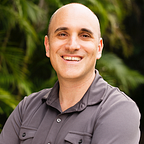Before Donald Trump was President, he twice tried to skirt the Cuban embargo and build a hotel or golf resort on Cuban soil.
While he curbed attempts to build in Cuba since just before he got elected, many Cuba-watchers anticipate that if elected to a second (and final) term, he would have no incentive to not act on his own self-interests to bring a Trump-branded golf resort to the island nation.
The assumption is that without concern for winning Florida’s Cuban votes, he’ll use the powers of the presidency to achieve all of his business goals in Cuba, which will unleash all American corporations to follow suit.
Would a second term for Trump spur a revitalization of Cuban-American ties? Would Trump legitimize Cuba’s government in the name of achieving his Cuban holiday resort dreams?
The Background:
In 1998, Trump violated the Cuban embargo by hiring a consulting firm to fly to Fidel Castro’s Cuba and feel out making a deal to build a hotel despite the embargo. Their trip to Cuba was made on false pretenses (they disguised it as a charity mission). Source: Newsweek
Trump later admitted to breaking the embargo for this exploratory trip, but he reasoned that it wasn’t illegal because he didn’t actual make a deal while in Cuba. Source: Washington Post
This was just before Trump’s first attempt to run for President. Here is how Newsweek describes the events:
Trump launched his presidential campaign in Miami in November 1999. There, at a luncheon hosted by the Cuban American National Foundation, an organization of Cuban exiles, he proclaimed he wanted to maintain the American embargo and would not spend any money in Cuba so long as Fidel Castro remained in power. At the time, disclosing that his company had just spent money on the Cuba trip, or even acknowledging an interest in loosening the embargo, would have ruined Trump’s chances in Florida, a critical electoral state where large numbers of Cuban-Americans remain virulently opposed to the regime.
In 2008, Trump registered his trademark in Cuba. Source: Miami Herald
Between 2012 and 2015, several Trump Organization executives responsible for developing golf properties traveled to Cuba repeatedly. According to Businessweek magazine, they claimed to be going to the island for golfing and bird-watching.
“They had some meetings,” Donald Trump admitted to Jim DeFede, an investigative reporter for CBS Miami.
In fact, two business consultants reportedly introduced the Trump executives to possible partners in Cuba and even prepared sketches of what Trump Tower Havana might look like. Miguel Fluxà, chief executive of Spain’s Iberostar Hotels and Resorts, which operates 17 hotels in Cuba, also said that the Trump Organization was trying to negotiate opening its own hotels there.
In early 2016, Wolf Blitzer interviewed candidate Trump and asked if he would open a hotel in Cuba.
“I would, I would,” he said, before apparently acknowledging the legal limitations imposed by the embargo. “At the right time, when we’re allowed to do it.” Source: The Conversation
In the middle of his reelection campaign, in June of 2020, Trump sidelined his sole competitor’s stake in Cuba by ordering Marriott to seize operating in Cuba, “extinguishing what had been a symbol of the U.S.-Cuban detente,” a position that they had secured under Obama’s revised policies to the island. Source: Reuters
Happy to extinguish his competitor’s edge and simultaneously pander to Florida’s Cuban community, Trump set the slate clean to bring in his own second term policies.
The Second Term Surprise:
Donald Trump has a reputation for saying-what-it-takes to get deals done and then disregard the terms of such agreements when it no longer serves him to cooperate. This has been labeled as his “business plan” by the Wall Street Journal.
Trump makes deals based on commitments, and then he shortchanges his partners.
Speculation is that if Trump gets elected for a second term, he will have received everything he needs from Florida’s Cuban community. He will immediately follow his business plan of shortchanging them.
The first step in the shortchanging could be where it benefits him the most: opening up the island nation to American hotels and American tourists.
According to Wikipedia, “Between 1915 and 1930, Havana hosted more tourists than any other location in the Caribbean.” By 1959, 8 out of 10 visitors to the island were Americans.
Yet, Cuba’s revolution changed Washington-Havana relations rather quickly, and in 1961 the American government banned business and tourism in Cuba.
From Trump’s Florida-based vantage point, a state that gets within 103 miles of Cuba, this beautiful island nation full of cheap land and labor, is an ideal place for new hotels.
Trump has always wanted access to the Cuban tourist market. He doesn’t like that European hotel groups have developed a foothold in the country and he is stuck watching from the sidelines.
The question is whether he will use his second term to open up Cuba for American development? Everyone who knows the man seems to agree that once he secures the votes he needs from the influential Cuban American community in Florida, he will be free from pandering to their anti-Cuban-trade sentiments. He can return to his Cuban investment strategy with the full power of the presidency behind him.
So, will Florida’s Cuban population propel Trump into a second term and then get a sucker punch in return? Only time will tell.
